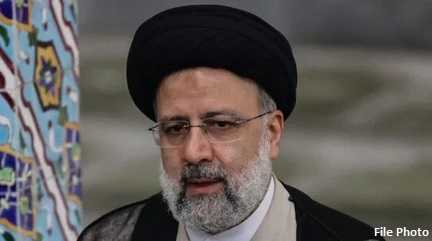
07 Dec 2022; MEMO: Iran's President, Ebrahim Raisi, said Wednesday that protesters will be heard by the government amid protests over the death of a young woman in police custody, Anadolu News Agency reports.
Speaking at a function at Tehran University to mark the annual Students Day, Raisi said his government deems dialogue with university students useful and stressed that everyone will be heard, including those with "opposite views".
Pertinently, public universities in Iran have emerged- as bastions of anti-government protests since mid-September, when 22-year-old Mahsa Amini died in police custody.
Hundreds of students in Tehran and other major Iranian cities were arrested over participation in the protests.
According to judiciary officials, most of them have been released.
Sporadic protests continue in many universities, including Tehran University, which is the premier government-run university in the Iranian capital.
Raisi told students that the government welcomes the process of dialogue with them, emphasising that they "should be heard as the future builders of the country".
"I consider communication between the government and universities necessary and I truly believe that a university, as the think-tank of the government, can help the government in solving the country's problems," he said.
Raisi, the former Judiciary Chief who took office last year, has been under tremendous pressure due to the deteriorating economy, nuclear deal stalemate and growing tensions with the United States.
READ: Iran arrests 12 people accused of links with foreign agents
The countrywide protests in the past few months have compounded his government's woes, putting pressure on Raisi to either dissolve the controversy-ridden morality police or introduce reforms to the mandatory dress code.
Raisi told students that he was advised not to participate in Wednesday's ceremony at Tehran University, but he still went ahead with the program.
In his speech, the Iranian President sought to distinguish between what he called protest and unrest, adding that the former seeks "improvement" but the latter seeks "destruction and insecurity", going on to accuse the US and its allies of fomenting unrest in the country.
One of the student representatives in his speech told Raisi that the government must listen to the "voices of protesters" and address their demands.
"It's time for the government to consider the pain and suffering of people as its main issue and listen to voices of the protesters who are separate from troublemakers," he was quoted as saying.
In recent weeks, many senior government officials have been holding meetings with students in different universities in what observers see as an attempt to calm tempers amid the simmering unrest.
Iranian authorities have blamed the Western states, including the US, of "fomenting unrest" in the country, while the West has accused the Raisi government of crackdown against protesters.
Thousands of people have been arrested in connection with the protests, with at least 11 people sentenced to death by the judiciary, so far. The sentences can be challenged in the apex court.
According to reports, the European Union is mulling more human rights-related sanctions on Iran. It has already imposed a slew of sanctions on Iranian officials and government entities in recent months, including the morality police, which have been accused of hindering women's rights.




